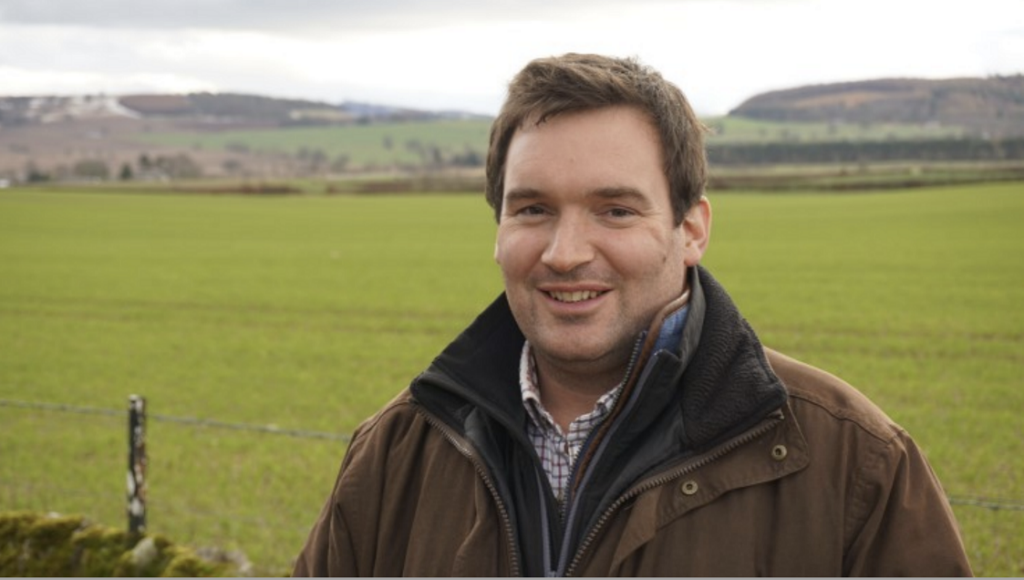Soil Regenerative Agriculture Group Case Study: James Hopkinson, Cloud Farming, Kirriemuir
30 March 2024Farming over 1,100ha of arable land in Angus, James Hopkinson is a partner and founder of Cloud Farming; a farm management business aiming to provide low cost highly adaptable alternatives to conventional farming. Cloud Farming works with Arable Ventures a joint venture which combines James’ family farm Lindertis and Walker-Munro Farms. Arable Ventures provide technology, equipment and labour to the farming operations in Angus.
The land farmed has a range of soil types; three-quarters of which is sandy loam with the remainder sandy silt, organic or clay loams. Cloud Farming and Arable Ventures grow winter wheat, spring barley, winter barley, oats, peas, linseed, beans and grass in an extensive rotation. Dung is put back on to the land via a straw for dung exchange at Walker-Munro Farms and an in-house cattle enterprise at Lindertis.
Direct drilling
James and his team favour direct drilling, non-inversion & shallow scratch tillage, having moved away from full inversion tillage around two years ago. James aligns the rotation accordingly and has experimented with direct drilling spring barley and spring crops but to date has had mixed results, but will look to reconsider barley in future rotations.
Protecting farm soils
James is keen to protect soils, keeping them under permanent cropping and stubbles where possible or employing suitable cover crops. James has conducted grazing trials on his winter cereals for the last two years which he is hoping will allow him to cut back on chemical spend, feed soil biology and increase soil fertility.
What’s next?
Ultimately James would like to reduce the use and need of chemicals and synthetic fertilisers. James has already stopped applying “bagged” P&K and insecticides. He knows it is a slow process which requires a complete change of thinking and adoption of new techniques. He understands that to reduce these inputs he must first have healthy soils. James is hoping to find manageable crop nutrition monitoring systems & techniques to meet the shortfalls in plant nutrition, which leave his crops vulnerable to attack from pests & disease.
James said “I believe that it is becoming rapidly unviable to consider only treating the symptoms of poor soil health such as pests & diseases and that we need to be addressing the root causes which are poor soil structure, chemical balance and biological activity. I hope that this project will help us gain a clearer understanding on how to change and improve soils on our farms.”
Sign up to the FAS newsletter
Receive updates on news, events and publications from Scotland’s Farm Advisory Service

